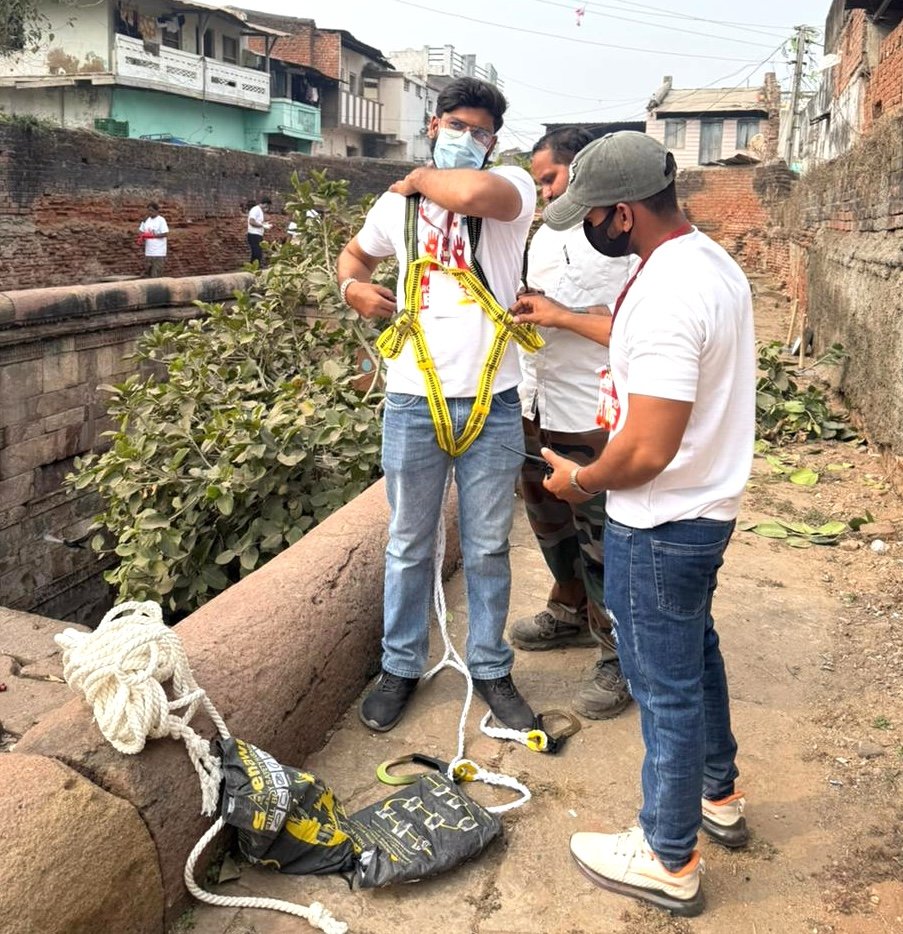Tax Exemption on Donations under Section 80G

A voluntary help, either in terms of money or kind, towards needy people, is known as charity. It not only makes you feel happy from within, but when you donate you can also save some tax.
Today, there are various Non-Governmental Organisations (NGOs) and other non-profit bodies that collectively work towards conducting charitable activities that help them raise funds or non-monetary charity for people in need. Such institutions have put forth their best efforts that further play a significant role in promoting the various economic development and social welfare objectives that the Indian Government has initiated. The outreach and localised approach that NGOs and other non-profit entities follow has allowed for the identification of the needy and helps in ensuring that a supporting hand is provided to them. This is one of the key reasons why the Government of India offers tax incentives and exemptions to NGOs and charitable organisations with the exemptions under Section 80G of the Income Tax Act being the most significant ones.
What is Tax Exemption?
The reduction or removal of a liability to make a mandatory payment that is otherwise imposed by the ruling power on a property, individual, income, and so on, is known as tax exemption. Having a tax-exempt status may also provide relief from other taxes, offer reduced rates, or tax only on a portion of certain items. Exemption of tax for donations to charitable trusts and NGOs, from property and income taxes for veterans, cross-border scenarios, and so on, are some of the examples of tax exemption. An important thing that organisations need to keep in mind is that the registrations are granted under Section 12A of the Income Tax Act. However, that doesn’t give direct approval for deductions under Section 80G. This is because Section 80G tax benefits on donations apply only to charitable trusts, NGOs, and similar institutions. It doesn’t apply to religious trusts or institutions.
Section 80G of the Income Tax Act of 1961 is a little different, as it provides tax exemption to charity donors as well. Donations to an NGO under 80G offers deductions while calculating the total income of the donor. The recipient of the charity donation gives a receipt of donation to the donor based on which they get the entitled deduction, provided the NGO or charitable trust is approved under Section 80G. In addition to this, tax exemptions on charity are also applicable, provided the charity organisation is established in India and is operating for charitable purposes in the country.
How can I save tax by donating to NGO?
Donation not only makes you happy but also lets you donate and save tax. Section 80G of the Income Tax Act’1961 provides tax exemption to both the charitable trust and the charity donor, provided the NGO meets all the stated rules of the act. You need to present the receipt of donation based on which you can avail the deduction.
What is the maximum amount of income tax exemption under 80G
Depending on the category of donation, the maximum limit for deduction is set. While in some cases, there is no maximum limit set for the deduction; in some, the income tax exemption under 80G is set at a limit of 10% of the adjusted gross total income of the charity donor.
What is tax exemption under 80G?
Tax exemption under 80G is applicable to only to NGOs, charitable trusts, and similar institutions. The deductions are not applicable to religious trusts and other such establishments. The tax exemption under 80G is unique as it provides tax deductions to the ones making the donation as well.
What is the tax exemption for donations?
Tax exemption is the removal or reduction of a liability from making a mandatory payment that is imposed by the ruling power on a property, income, and so on. Tax exemptions on charity can availed when you make a donation to a charitable trust or NGO, provided the stated rules are met.
How much of a donation is tax deductible?
For tax exemption donations under Section 80G, amount in cash within the limit of Rs. 2000/- is eligible. However, for amount exceeding Rs. 2000/-, payments in any mode other than cash are eligible for tax deductions. Contributions like food, medicines, and so on are not eligible for tax exemption donations under 80G.
Which donation is eligible for 100% deduction?
For 100% tax deductible donations, there are categories and sub-categories like deductions without any limit, deductions with limits, and so on, under which you have to donate. An important thing that you need to keep in mind is that if your donation falls under 100% deduction, having Form 58 is a must.
What are the benefits of NGO donation?
Availing tax benefits on donation is one of the best advantages of donating money to an NGO. You can easily claim tax deductions provided the NGO is eligible under Section 80G of the Income Tax Act’1961. Other than tax benefits on donation, helping the needy also makes you feel happy and content.
How is 80G donation calculated?
You can make donations to NGO under 80G to claim tax incentives. There are various donations that are specified under Section 80G. They can be eligible for tax deduction of up to 100% or 50% with or without restrictions, provided they meet all the rules stated under Section 80G.
What is the limit for donation under 80G?
If you wish to donate the amount in cash, the limit for donation under 80G is Rs. 2000/-. If the donation amount exceeds Rs. 2000/-, you have to donate in any mode other than cash to qualify for the donation deduction under 80G.
Do Charitable Trusts pay tax?
Non-Governmental Organisations (NGOs) and charitable trusts in India are subjected to tax exemptions under Section 80G of the Income Tax Act of 1961. However, for the tax exemption, the charitable trust must be established in India and should operating for charitable purposes in the country.
Are there tax exemptions on cash donations as well?
Cash donations above Rs.2, 000 are not applicable for 80G certificates.
Do you issue instant tax receipts?
Soft Copy Receipt of the donation is made available instantly. But, Hard Copy of your tax receipts can be provided within 10 days.
What is the minimum amount that needs to be donated to get a tax exemption?
A minimum of Rs 500 needs to be donated to avail tax exemption under IT sec 80 G for Online Donations.
When can I get a tax exemption certificate?
We generate the tax certificate within 8 days from the date of the contribution made through online donations. Including the courier process, it takes 10 days for the exemption certificate to reach you. If you contribute offline it takes 15 to 20 days.
What Tax exemption benefit do I get?
Making donations under section 80G can help you with tax deduction benefits. The exemption is calculated by reducing the donated amount from your taxable salary. For instance, if your taxable income per year is Rs 200,000 and you make a donation of Rs 5,000 then your net taxable income will become Rs 197,500. Your tax will now be calculated on this new amount basis the prevailing tax rates. As per the revised tax exemption act, effective April 1, 2017, donations to Drishti Foundation Trust will be eligible for a 50% tax exemption under Section 80G of Income Tax Act.
What are 80G donations?
80G is a certificate that exempts you from paying taxes if you have made donations to NGOs, charitable trusts that are registered to offer you exemptions from taxes. Donations to Drishti Foundation Trust are exempt from 50% tax under section 80G of the Income Tax Act. The tax benefit is valid only in India.
Income Tax Exemption in India: How does it work?
Tax exemption is the financial exclusion that lowers the taxable income. Tax exemption is therefore a mandatory exemption to a general rule. Tax exemptions are given to boost certain economic activities such as the activities of the Charity Organization.
Facebook: https://www.facebook.com/DrishtiFoundationTrust/
Instagram : https://www.instagram.com/drishtifoundation
Youtube : https://www.youtube.com/drishtifoundationtrust
Twitter : https://www.twitter.com/dftindia

